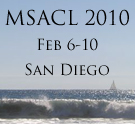| Clinical Diagnosis of Amyloidosis on Paraffin Embedded Tissue by MS-based Proteomic Analysis |
| Wed 9:30 AM - Track 2: Protein and Metabolite Analysis from Tissue |
Ahmet Dogan
Mayo Clinic |
|
Ahmet Dogan, Julie A. Vrana, Steven R. Zeldenrust, Jason D. Theis, Jeffrey D. Gamez, Paul J. Kurtin.
Mayo Clinic, Rochester, MN |
|
|
The clinical management of amyloidosis is based on the treatment of the underlying etiology, and accurate identification of the protein causing the amyloidosis is of paramount importance.
Current methods used for typing of amyloidosis such as immunohistochemistry have low specificity and sensitivity. We have developed a highly specific and sensitive novel test for typing of amyloidosis in routine paraffin embedded clinical biopsy specimens (Vrana et al, Blood 2009). Our approach combines specific sampling by laser microdissection (LMD) and the analytical power of tandem MS-based proteomic analysis. Congo red stained paraffin sections were prepared and amyloid deposits were microdissected by LMD. The microdissected tissue fragments were processed and trypsin digested into peptides. The peptides were analyzed by nano-flow liquid chromatography electrospray tandem MS.
The resulting MS data were correlated to theoretical fragmentation patterns of tryptic peptide sequences from the Swissprot database using Scaffold (Mascot, Sequest, and X!Tandem search algorithms). Peptide identifications were accepted according to previously established criteria. The identified proteins were subsequently examined for the presence or absence of amyloid related peptides.
We studied 50 cases of amyloidosis which were well-characterized by gold standard clinicopathological criteria (training set) and, an independent validation set comprising 41 cases of cardiac amyloidosis. LMD/MS identified the amyloid type with 100% specificity and sensitivity in the training set and was conclusive in 98% of the validation set. Since the clinical implementation, we have successfully analyzed an additional 724 cases of amyloidosis. Of these 288 (39%) cases were AL-lambda, 156 (22%) AL-kappa, 151 (21%) ATTR and 56 (8%) cases were AA. Surprisingly remaining 73 (10%) of the cases were unusual or previously unknown amyloid types which would not have been readily recognized by antibody based typing approaches.
LMD/MS method will greatly enhance our ability to type amyloidosis accurately in clinical biopsy specimens and improve clinical management of amyloidosis patients. This study also shows that MS-based proteomic approaches can be readily applied to address diagnostic problems in paraffin embedded tissues.
|
|
|
| Email: dogan.ahmet@mayo.edu |



